LAURA MCCULLOUGH
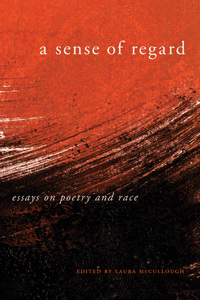 Excerpt of his essay: The accepted contemporary subtexts of American literary whiteness include the whole long shadow of American racial injustice, first, of slavery, and secondly, of ongoing economic and social inequality—haunting realities. We stand indefinitely, and anxiously, in their shadows. Another part of the shadow is ongoing white privilege, and the natural instinct to retain advantage. Take myself as an example. On the one hand, I'll acknowledge my privilege readily; on the other hand, I hope not to be inconvenienced. Secretly too, my ego will privately continue to believe that whatever success I have experienced has been legitimate, is appropriate, and has been earned by my individual talent and hard work. These are called subtexts for a reason; I will never say this openly, because of the hazard that accompanies frank expression in the public forum on the topic of race. The topic itself, everyone knows, has become the territorial property of persons of color. Thus, the frank, exploratory, spontaneous speech that our shared reality requires can easily end in blame or disgrace. Thus I won't ever disagree, openly, with the consensual liberal parameters of the racial conversation. I will be a yes-person. Occasionally, in a marginal way, among my liberal white friends, I will ironically acknowledge that the machinery of affirmative action is at work in the cultureplace. This calculation of equity (counting heads) is the price of repairing history. I consent to the machinery, and, though I would personally prefer not to pay the disadvantageous price of it—oh well, it's not about me. My main public obligation is to appear unconflicted. Whether I feel good about it or not, to be conflicted about race would, in itself, be an admission of confusion about these labyrinthine American matters. Confusion is suspect. The gap between these two unconscious positions—the position of historical plaintiff, played that evening by Alexander, and the position of uneasy, but secure self-righteous possessors of privilege, played by myself—is substantial, and, so far, mostly unbridged. Both positions seem a little petrified or fossilized. Our consensual silence—the particular silence of white liberals—on the subject of race is, paradoxically, ultimately an obstacle to acknowledging the present and moving into the future. It's not hard to see that we—both white and black poets—are still breathing through straws. Brothers and sisters—am I allowed to say that?—we are haunted. One question is: can a conscious poetry help bridge it? To read Tony's essay and his answer to that question, and to read all the others, you can get the anthology here.
0 Comments
Making Enemies: Ailish Hopper4/14/2015 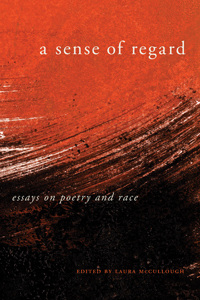 Ailish Hopper’s “The Gentle Art of Making Enemies” considers the destabilizing, re-assembling and re-visioning of race through poetry, and the gestures, strategies, and maneuvers of many poets currently working in this vein. Read a couple of excerpts of her well researched essay: Challenge the codes [regarding race] and you will be punished by their enforcers---who may be black or white. This protective border serves what James C. Scott calls the “public transcript,” which justifies and prosecutes its “rules” that are by nature hidden. They can only be expressed in codes, euphemisms, and other forms of disguise, which appear as simply agreed-upon, unanimous. Meanwhile there exists a “hidden transcript,” the things that are said away from the gaze of the racial codes and their enforcers. (1990, 45) As in the rest of the world’s activities, poetry, publishing, and criticism numbingly and brutally reflect this dynamic, what Marcel Cornis-Pope calls, “narratives of containment” (2001, xii). ... [A]nger, is equally distorted across the racial spectrum. For white poets, for instance, pain is only visible in its neurotic forms, e.g., “white guilt,” which is merely another version of white refusal. Real accountability, naming the stage and the script we all stand on and speak from, is thus an important rupture. Martha Collins acknowledges that: “…a few years after Brown/ v. Board of Education [she] wrote a paper/ that took the position Yes But not yet,” not adding a narrative of remedy, despair, or even hope (2011, 1). She simply opens this closed space in history and lets stand her naked complicity. This poetics is thus a cold shower not only on history, but on our readerly desire to be soothed or to find sympathetic understanding. Rewriting aims to disrupt what Brecht called a “hypnosis” between that can happen between poem and reader, if it is based on stable, but false, notions of our own, and others’, identities. (1961, 12) Inside this hypnosis, all manner of racial codes can safely be transmitted, with the reader unaware. This disruption, since language is so complicit, too, is well assisted by visual language or actual images. Claudia Rankine, in Don’t Let Me be Lonely, pairs a poem with an illustration by John Lucas that makes material the social internalization of “toxic” racialization: TO READ THE FULL ESSAY AND ALL OF THE OTHER, YOU CAN GET THE ANTHOLOGY HERE Moving through a Fog of White4/7/2015 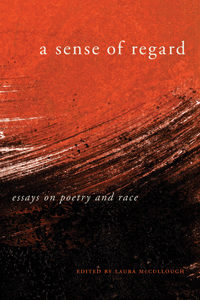 Tess Taylor, herself a descendent of Thomas Jefferson, examines, in a bright and thoughtful essay, poetry that addresses racialization from a white perspective. Snippet: How might writers who have been discouraged or even disinvited from thinking about their racial experiences as racial begin to read and write those experiences? Which instincts towards silence or omission would such a writer have to overcome? What is at stake in naming spaces where race, racialization, and racism occur in white lives? If whiteness is partially maintained by strategies of not-saying, not-knowing, self-normalizing, what does it mean to craft art in which whiteness can be destabilized? In short, how does a subject take responsibility for moving from whiteness to witness? Three contemporary poets—Jake Adam York, Rachel Richardson, and Martha Collins—have been remarkably successful at giving aesthetic form to these questions as they struggle to name and claim some of the paradoxes of inheriting white experience. How does each work against the “fog” that Morrison describes? How does each deploy, reveal, and break racial codes? How does each position the expression of racial knowledge, especially racial knowledge white writers have often failed to acknowledge or reveal? It’s worth noting that merely examining and naming the white body as white is historically itself a charged act. Melville’s Ishmael—the ultimate anonymous narrator—has historically been presumed white simply because he occupies the space of voyeur-reporter describing (other) racially marked bodies. In contrast, Collins, York and Richardson self-examine and self-mark. They call attention to their own bodies, stories, and speech, attempting to read the uneasy codes that converge upon them. In doing so, each tries to make the occluding cloud somewhat less blinding—and to show a way through it. Class, Clothes, & the Jersey Shore4/1/2015 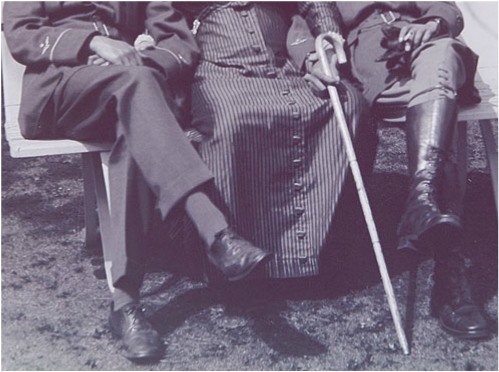 Vox Populi: a public sphere for politics and poetry has posted my essay about a pair of old army pants, "Things That have Lived and Then Died". It's part of a larger project about thrift stores, clothing, class, intimacy, boundaries between people, and the Jersey Shore called My Life in Other People's Clothes. Here's a snippet: That’s when I noticed the army pants. Thick green military wool. Clearly from one of the World Wars. I think American, but am not sure. It is something another person might research, compare linings, style and construction, stitching, but it isn’t the history or collectability that drew me to the pants. The wool was scratchy and rough against my palm. “Where did you get these,” I asked Molly. “Dunno.” She nodded for me to pick them up. In my hands, they unrolled to the ground, the cuff near my ankle. The man who’d worn these couldn’t have been much taller than me. “You can have them,” she said. It hadn’t occurred to me, but now I held them against my pelvis, the high waist against my belly, the button fly. “These are great,” I said. “Thank you.” “They look like they should fit.” I mumbled agreement. Something about the pants moved me. It wouldn’t be until later at home when I slipped my legs inside them that I felt my body slipping inside someone else’s, as if their bones and flesh were still present, and I was pulling them on over my own. When I buttoned the fly, and felt my hip bones settle in their sockets, a widening out happened, against what I normally feel, which is that I always want to make my hips appear as slender as I can. Instead, they seemed full and wide and supportive, and I felt as if my legs under me didn’t end in pretty feet or delicate ankles (which I don’t have, but always wish for), but somehow felt solid and competent and able to march far distances. This is not what I mean, really. Not that I imagined being a soldier, not that I imagined being strong and masculine. Instead, I felt as if time slid sideways, that the boundaries between people and times were somehow porous, and that this rough textile, this made thing that clothed I don’t know how many people before me, was a kind of portal. Many bodies, many times. I don’t care about the historical accuracy of place and time so much as a caring about a kind of emotional and empathetic residue. I am not the first to wear these pants, but I am likely to the last who will. And I do wear them every winter. And they are very warm indeed. And check out the rest of Vox Populi magazine, curated by Michael Simms of Autumn House Press. Archives
October 2023
Categories
All
|
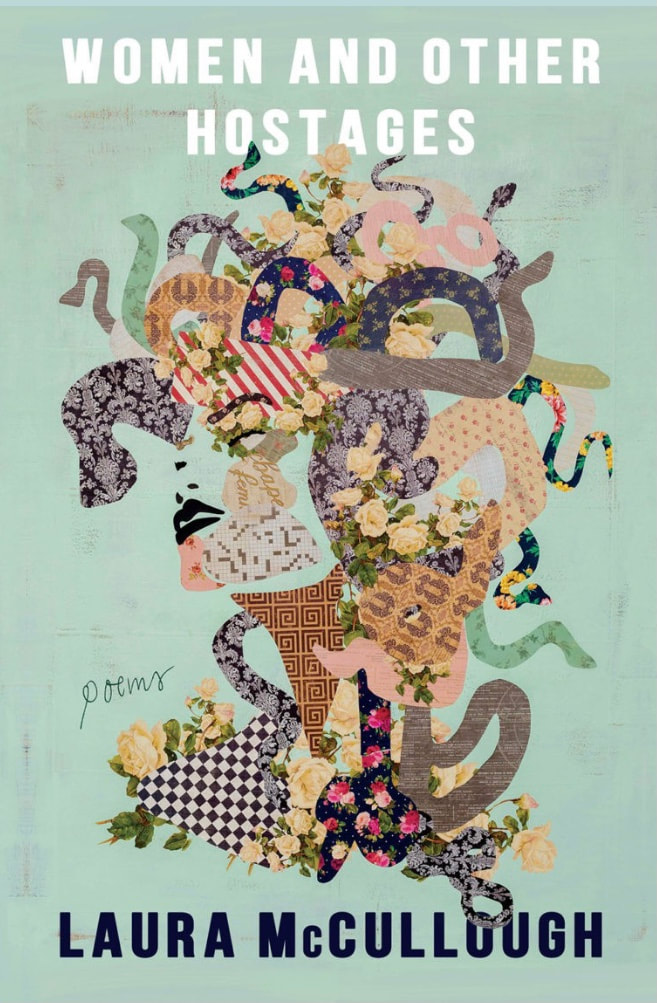
 RSS Feed
RSS Feed
